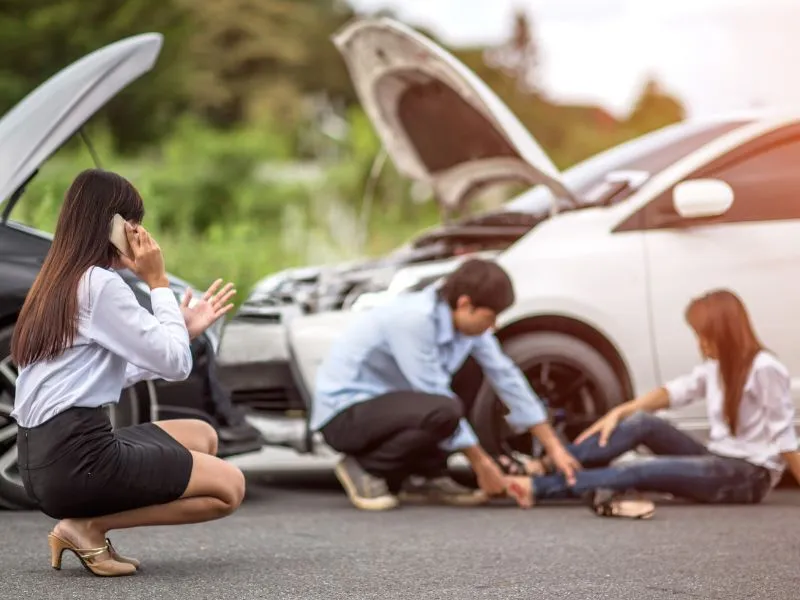
Car accidents can happen to anyone, at any time, and often when least expected. Whether it’s a minor fender bender or a serious collision, it’s important to know the right steps to take immediately after an accident. While the first priority is always safety, understanding your legal rights and responsibilities is equally important. Here’s a guide on what to do after a car accident from a legal perspective.
Ensure Safety First
Your first priority after a car accident should always be to ensure the safety of everyone involved.
- Check for Injuries: Make sure you and your passengers are safe. If anyone is injured, call emergency services right away. Even if injuries seem minor, seek medical attention. Some injuries may not be immediately visible.
- Move to a Safe Location: If possible, move vehicles out of traffic to prevent further accidents. Turn on your hazard lights to alert other drivers.
- Stay Calm: It’s natural to feel upset or shaken after an accident, but try to remain calm. Avoid admitting fault or making statements that could be misinterpreted.
Call the Authorities
In most cases, it’s crucial to call the police after a car accident, especially if there are injuries, property damage, or disputes about fault.
- File a Police Report: The police will document the accident and create a report. This can be valuable evidence when dealing with insurance claims or legal disputes.
- Provide Accurate Information: Be honest and provide all the necessary details when speaking to the authorities. Do not admit fault at the scene, as this can affect your legal rights later on.
Exchange Information with Other Parties
One of the most important steps in handling a car accident is gathering the right information from the other parties involved.
- Contact Details: Exchange names, addresses, phone numbers, and driver’s license numbers with the other driver(s).
- Insurance Information: Obtain the insurance company name, policy number, and vehicle registration details from the other driver(s).
- Witness Information: If there are any witnesses, make sure to get their contact information as well. Witness statements can help clarify what happened during the accident.
Document the Scene
Proper documentation is essential when it comes to insurance claims and legal actions.
- Take Photos: Use your phone to take clear photos of the accident scene, including damage to vehicles, any injuries, road conditions, and any relevant traffic signs or signals.
- Write Notes: Record the time, location, and conditions of the accident. If there were any unusual circumstances, such as weather or road hazards, make a note of them.
- Get a Copy of the Police Report: Request a copy of the police report once it’s available. This official document can help substantiate your claims later.
Notify Your Insurance Company
It’s essential to inform your insurance company about the accident as soon as possible. Many insurance policies require you to report an accident within a certain timeframe.
- Be Honest and Thorough: When speaking with your insurance adjuster, provide accurate and detailed information about the accident. Failing to do so could result in a denial of your claim.
- Understand Your Coverage: Familiarize yourself with your insurance coverage, including liability, collision, and comprehensive coverage. This will help you understand what expenses your policy may cover and what you may need to pay out-of-pocket.
Avoid Admitting Fault
It’s natural to want to apologize or explain yourself after an accident, but never admit fault at the scene. Fault determination should be made by the authorities and insurance companies based on the facts of the accident.
- Do Not Make Statements that Could Be Used Against You: Avoid discussing the accident in detail with the other driver, especially if it involves assigning blame. Anything you say could potentially be used in future legal or insurance disputes.
Seek Medical Attention
Even if you don’t feel injured immediately after the accident, it’s still important to see a doctor. Some injuries, such as whiplash or concussions, may not show symptoms right away.
- Get a Professional Evaluation: A medical professional can properly assess any injuries and document them for future claims. This documentation can be vital when dealing with insurance or a personal injury claim.

Share
Gor Garanyan is a content creator and legal writer for Vardanyan Law group, dedicated to simplifying complex legal topics for readers. With a passion for clear communication, Gor Garanyan crafts insightful articles to help clients and visitors better understand their legal rights and options.